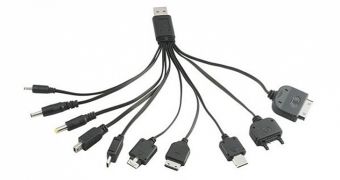The European Commission is relentless. First, it ordered Apple to be more transparent about in-app purchases, now it wants the company (and others like it) to agree to offer a universal charging standard for its iPhone.
In a press release issued this week (embedded below), the European Commission said it “welcomed the green light of the European Parliament to open up the possibility for the introduction of a common charger for mobile phones and other portable devices in the update of the rules on radio equipment.”
If the directive turns into a full-fledged law, Apple and its competitors in the smartphone industry will have no choice but to comply and replace its Lightning connector with a more traditional mini/microUSB standard.
The move is not only intended to eliminate hassle for the customer, but also to reduce e-waste. Today, people have at least two or three chargers sitting around their homes because of the various charging standards imposed by the vendors of their smartphones and tablets.
For example, Android and Windows phones regularly use microUSB, but there are a lot of low-end phones out there that still use proprietary standards (like some cheap Nokia and Samsung phones). If there’s an iPhone or an iPad in the house, yet another cable + charger is added to the mix.
In fact, Apple actually prevents iPhones from charging to computers unless the customer expressly grants it permission to feed off a USB port. It’s a security measure that partially justifies Apple’s decision to offer a unique connectivity standard.
Nevertheless, European parliament negotiator Barbara Weiler is convinced that, “This new directive ends this nightmare and is also good news for the environment as it will result in a reduction of electronic waste.”
Apple prides itself on designing both the hardware and the software to seamlessly work together. Being forced to work around an old connectivity standard such as microUSB may pose innovation problems for the Cupertino giant.
However, it probably won’t be long before all smartphones get wireless charging, and with all the wireless syncing going on, wires are really becoming a thing of the past.
It’s also true that Apple rakes in a lot of cash from selling Lightning cables and adapters. The company also charges royalties from third-party vendors who wish to have the MFI (made-for-iPhone) certification stamped on their iPhone and iPad accessories. If the EU forces Apple to forego the Lightning connector, the move would also impact the business of dozens of MFI-certified accessory makers.
However, we should also remember that Apple is a leading advocate of limiting the carbon footprint, both its own, and that of the customer. Agreeing with the EU would be a true testament of these endeavors. All that remains to be seen is if they do the same worldwide.

 14 DAY TRIAL //
14 DAY TRIAL //